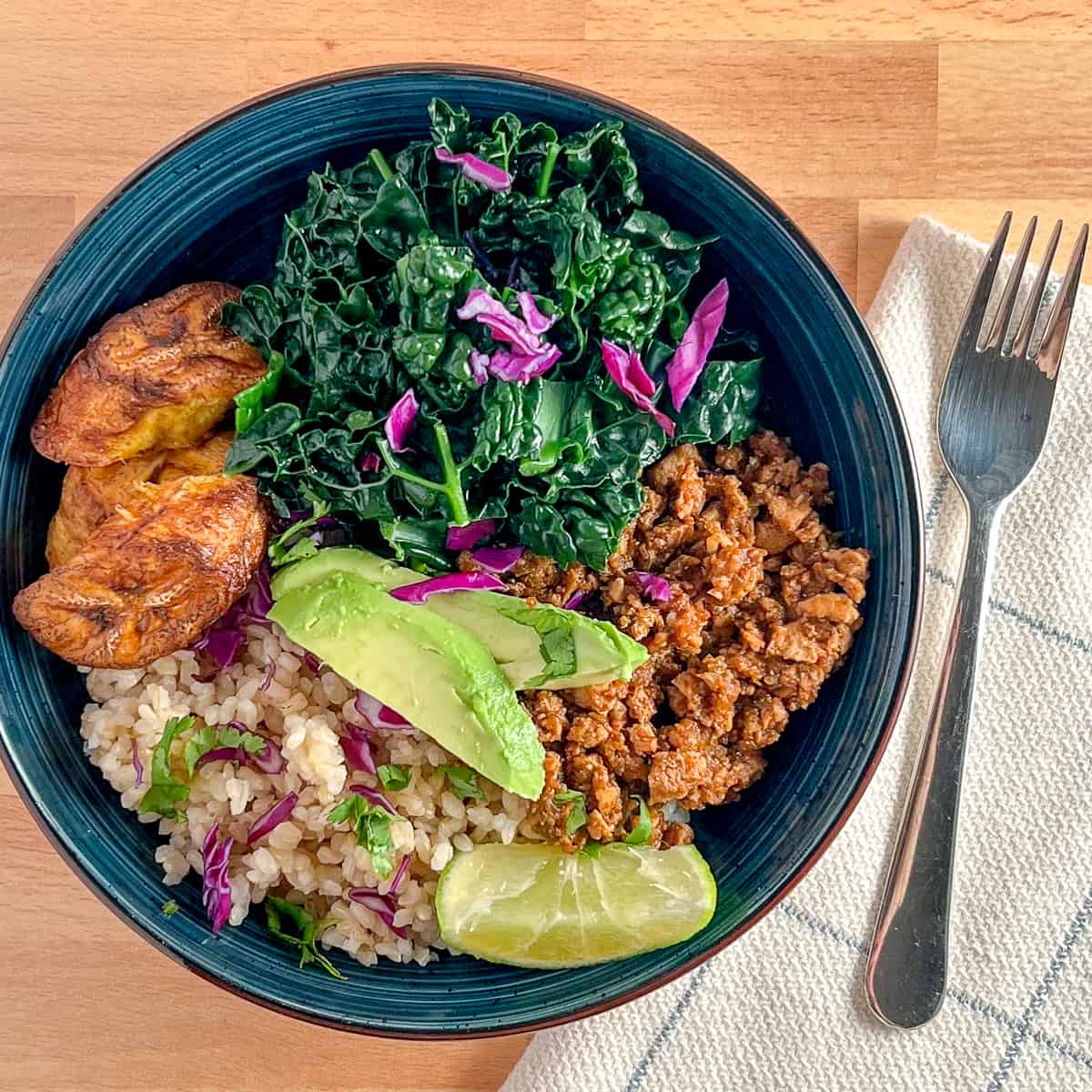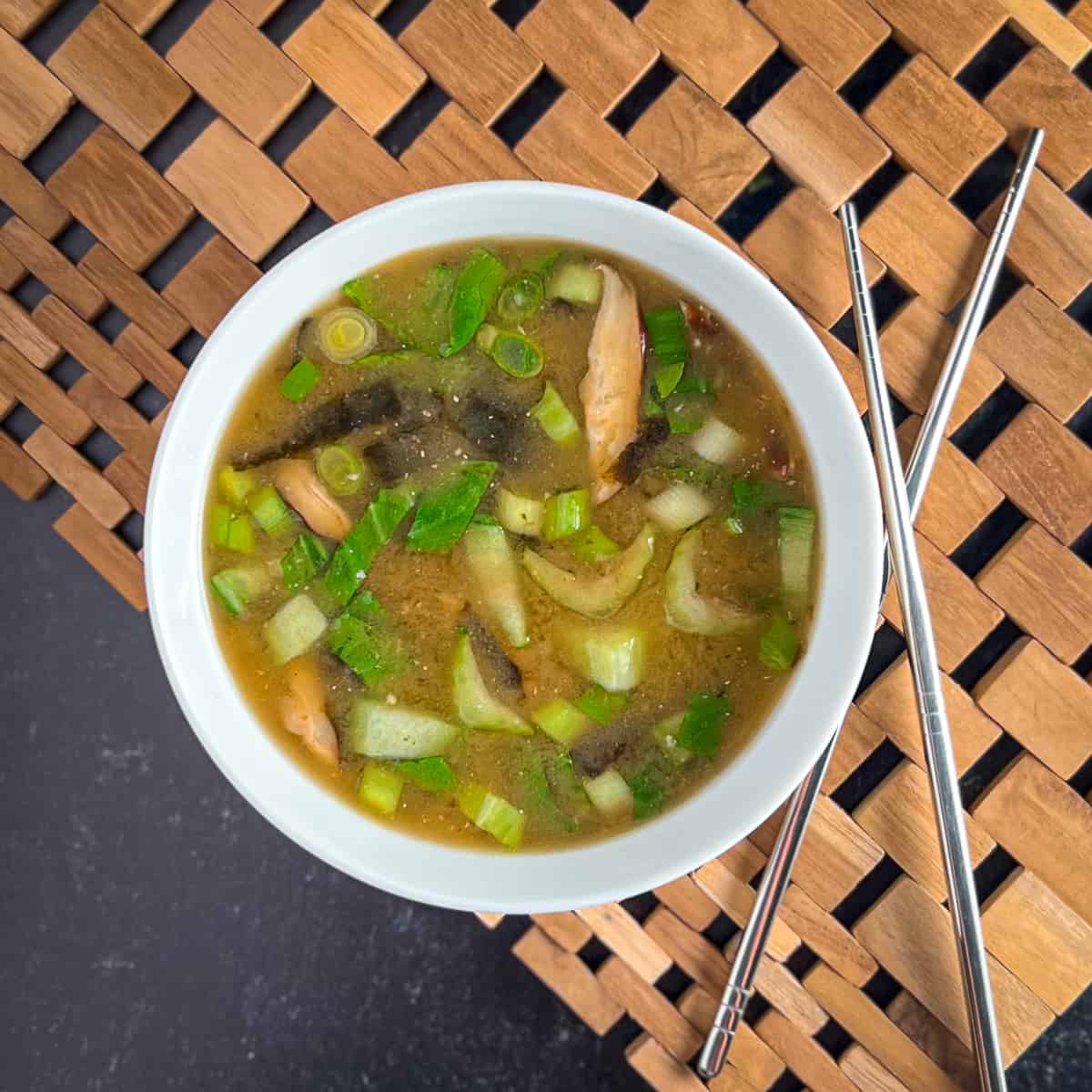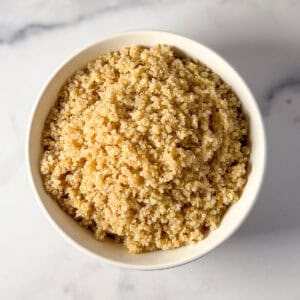This article summarizes the top benefits of soy and provides a collection of healthy vegan recipes that contain this nutritional powerhouse. As a point of background, I'm a licensed nutritionist and certified lifestyle medicine professional. I've come to appreciate the science of soy nutrition in chronic disease prevention, treatment, and reversal. I personally consume soy on a regular basis, and I hope this article helps you with your health journey.
Soy has emerged as a prominent player in the realm of nutrition and health. This versatile legume, native to East Asia, has gained popularity worldwide due to its myriad of benefits. While some people may have a soy allergy, those who do not may consider adding this legume to the rotation. Here are the top 10 benefits of eating soy. Be sure to check out our favorite healthy vegan recipes containing soy.
1. Excellent Source of Protein
Soybeans are a complete protein containing all nine essential amino acids necessary for human health. This makes soy an excellent plant-based protein option. In fact, soy protein is comparable in quality to animal protein sources, such as meat and dairy—but without the pro-inflammatory and disease-promoting substances (like TMAO and IGF-1) that animal sources contain.
2. Heart Health
Regular consumption of soy has been associated with lower levels of LDL cholesterol, which is a risk factor for heart disease. Soy protein, fiber, and plant compounds in soy contribute to its heart-protective effects. Soy foods are also lower in saturated fat than their animal-based counterparts, adding to their heart-protective benefits.
3. Bone Health
Soy is rich in calcium, which is essential for maintaining strong and healthy bones. Additionally, the isoflavones in soy may help protect against bone loss and maintain bone density, particularly in postmenopausal women. As a nutritionist and certified lifestyle medicine professional, one of my favorite foods that I enjoy regularly is natto (check out this article we published, Are you hardcore about healthy eating?).
4. Hormonal Balance
Contrary to past concerns, moderate soy consumption does not adversely affect hormonal balance in most individuals. Soy isoflavones may even offer protective effects against hormone-related conditions such as breast and prostate cancers. The compounds in soy appear to help regulate hormone levels, reducing the likelihood of cancer cell growth and proliferation. A systematic review and meta-analysis show that those who consume soy on a regular basis have a 26% lower risk of breast cancer recurrence.
5. Weight Management
Soy protein has been found to promote satiety and reduce calorie intake, making it beneficial for weight management efforts. You see, soy contains fiber, and animal foods do not. The fiber helps to promote satiety and a feeling of fullness. Soy, including tofu, tempeh and edamame, tend to be lower in fat, helping them to also be lower in calories, which aids in achieving and maintaining a healthy weight. A randomized crossover study showed that a plant-based meal containing tofu increased satiety more than the processed meat meal.
6. Menopausal Symptom Relief
Studies suggest that soy consumption may alleviate symptoms of menopause, such as hot flashes and night sweats, due to its estrogen-like effects. However, more benefits may be produced when your dietary pattern is mostly fiber-rich whole plant foods based on your body's ability to produce equol. Check out this article, How to Become and Equol Producer to learn more.
SAVE THIS RECIPE!
We'll also send you other yummy recipes. No worries! You can unsubscribe at any time. 💙
7. Digestive Health
Soybeans are a good source of dietary fiber, which promotes digestive health by aiding in regular bowel movements and preventing constipation. Fiber also helps maintain a healthy gut microbiota. Research studies about soy and gastrointestinal (GI) health show that soy foods, especially fermented soy, like tempeh, miso, and natto, are associated with improved GI health.
8. Antioxidant Properties
Soy contains antioxidants such as vitamin E and isoflavones, which help combat oxidative stress and reduce the risk of chronic diseases, including certain cancers such as breast, prostate, and endometrial cancers. The antioxidant role of soy and soy foods in human health appears to have a role in stopping free radicals.
9. Blood Sugar Regulation
Incorporating soy into the diet may help regulate blood sugar levels, which is beneficial for individuals with diabetes or those at risk of developing the condition. The fiber and protein in soy contribute to its ability to stabilize blood glucose levels. A large-scale systematic review and meta-analysis showed that regular consumption of soy lowered the risk of type 2 diabetes.
10. Cancer Prevention
Research suggests that soy consumption may reduce the risk of certain cancers, including breast, prostate, and colorectal cancers. The isoflavones in soy have been shown to have anti-cancer properties and may inhibit tumor growth. Research shows that because isoflavones are structurally similar to estrogen, they can bind to estrogen receptors and help control estrogen levels in the body. Check out this research article that discusses how the compounds in soy have a cancer-suppressing effect in the human body.
Healthy Vegan Recipes with Soy
Now that you've read about all the amazing health benefits of soy in your diet, you may be curious about some delicious ways to add this nutritional powerhouse to your meal plan. We've got you covered! These healthy vegan recipes are tasty and satisfying, loaded with flavor and nutritional benefits.
















Leave a Reply